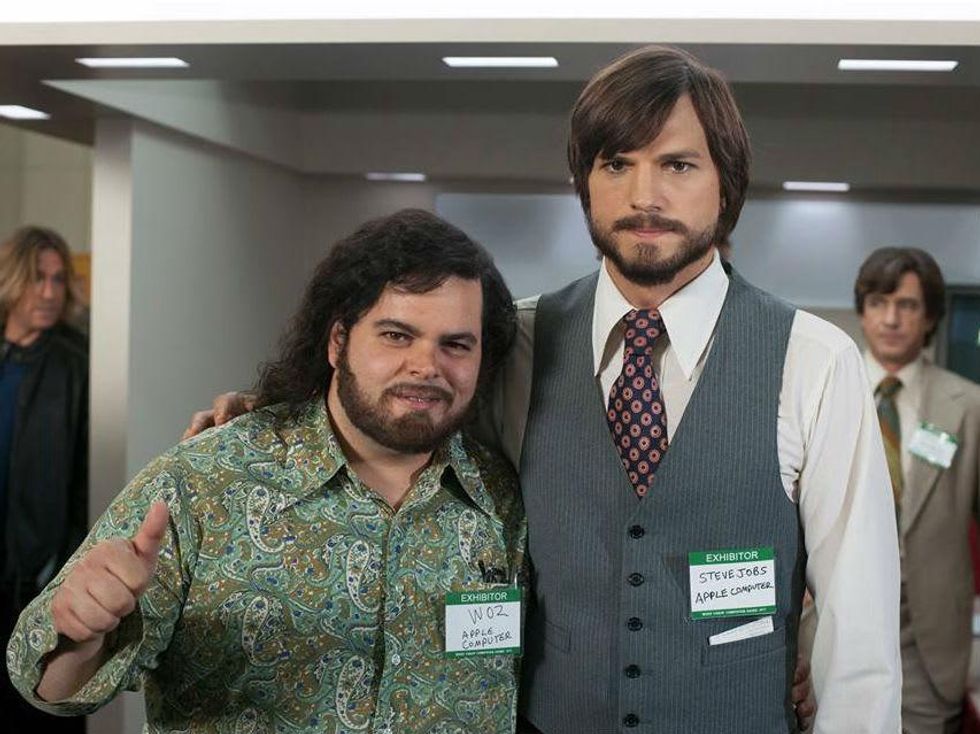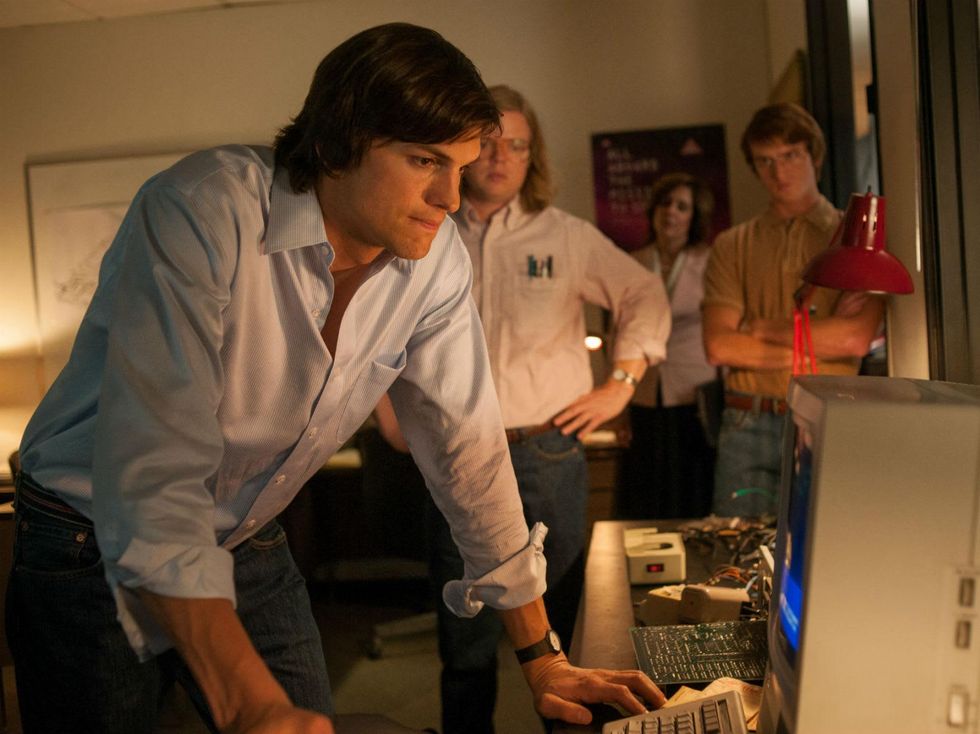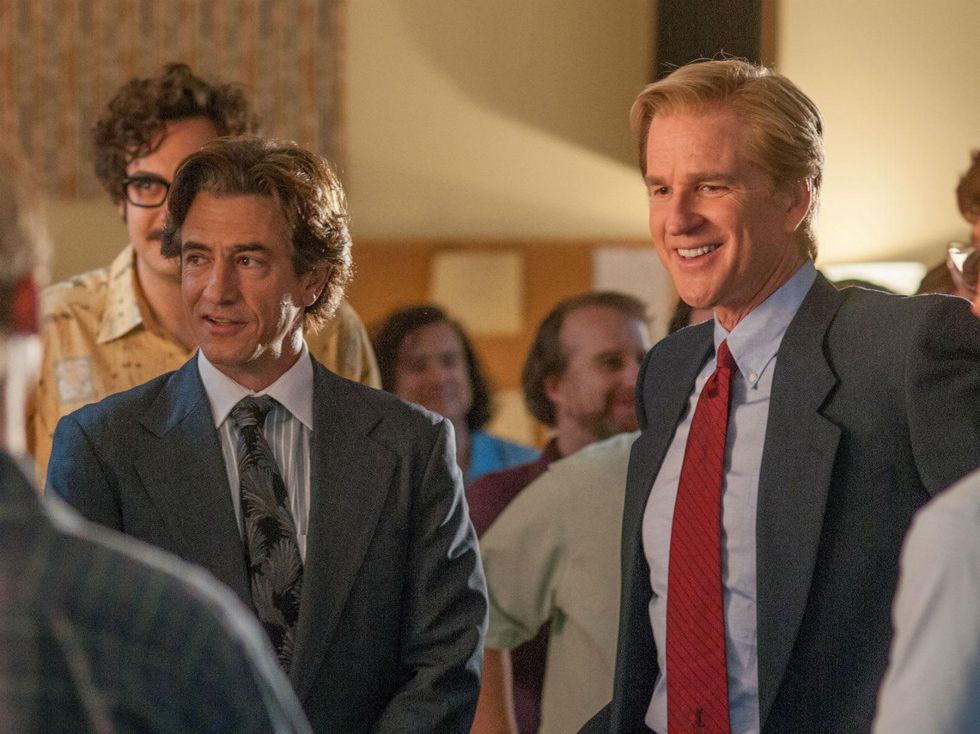The Beginning of Apple
Ashton Kutcher nails Steve Jobs' prickly genius in Jobs
Steve Jobs is unquestionably one of the greatest visionaries the world has ever seen, building an empire out of ingenuity, guts and guile. All of that and more is on display in Jobs, the first film about his life to come out following his death in 2011.
Ashton Kutcher plays the Apple co-founder in a story that traces the early days of Jobs’ rise to power. Anyone who worships their iPhone or iPad may be disappointed, however, as this film is more concerned with Jobs’ relationship with co-founder Steve Wozniak (Josh Gad) and how the two built the first Apple computer and proceeded to take on the world.
Ashton Kutcher does standout work as Jobs, embodying the attitude and eccentricities that made the man tick.
In fact, the closest the film comes to the current Apple era is a brief opening scene of Jobs introducing the first-ever iPod. It may or may not come as a surprise that Jobs was not known for his winning personality, and the film doesn’t shy away from his lack of social graces.
More often than not, Jobs is shown getting ahead in the world not because of his genius, but because of his arrogance and pushiness. In fact, you’d be forgiven if you wondered if Jobs had any computer skills whatsoever, as it’s Wozniak who seems to know it all in that regard; Jobs is the one who gets people to buy into their “crazy” idea.
One issue the movie can’t get around is the feeling that it’s covering the same territory as The Social Network. There wouldn’t be a Facebook if it weren’t for Apple, but the Facebook movie got made first, and the beats of this story can’t help but feel derivative of that one.
It has the genius dropping out of college, the start-up out of a house in Northern California, the competition with others with similar ideas, and even the ruthless cutting out of people who helped the company become successful.
Still, director Joshua Michael Stern and first-time writer Matt Whiteley push the story forward effectively, always portraying just how revolutionary Apple was in the early days of home computing. Hindsight is 20/20, but it can be a bit mind-boggling to see how few people gave Jobs and Wozniak credit for what they were creating.
That said, Stern deifies Jobs a bit too much. As the film goes along, many of Jobs’ speeches are accompanied by swelling orchestral music, as if every word he said was worthy of adulation. By repeating that process multiple times, it actually makes the character somewhat laughable instead of awe-inspiring.
Kutcher has built a career out of his comedic persona, so seeing him in this role may be tough for some people to swallow. But he does standout work as Jobs, embodying the attitude and eccentricities that made the man tick. He does go over-the-top at times, but he always manages to rein himself in before going off the rails.
The supporting roles also were filled nicely. Gad can’t shed his comic side quite as easily as Kutcher, but the role doesn’t really require him to do so. Other solid actors like Dermot Mulroney, Matthew Modine and J.K. Simmons make for great foils for Kutcher and help to elevate his work.
Jobs is not the perfect movie that Steve Jobs probably deserved, but it’s far from an embarrassment. It does an excellent job of showing how he could be reprehensible in his interactions with other people, but that he was also someone who commanded respect for his abilities.




